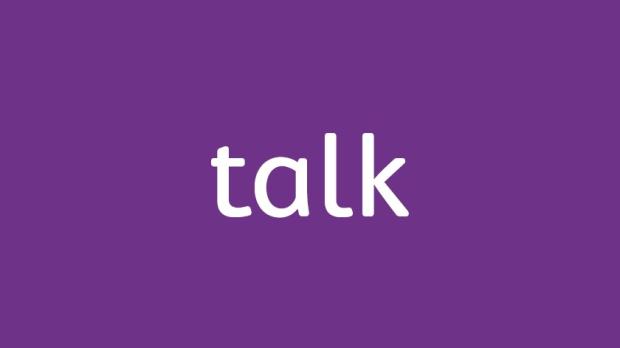Early life experiences, both positive and negative, affect the way your brain cells connect. This shapes your journey into adulthood. A positive relationship between you and your child supports their healthy brain development.
You can build your child's brain by:
- Giving your child your attention
- Responding to your child
- Interacting with your child
The brain takes around 25 years to become emotionally mature, and it makes new connections throughout childhood.
Understanding brain development can be difficult. We’ve teamed up with experts in the field called Knowledge Change Action Ltd (KCA). KCA has created a simple and effective approach called Five to Thrive.

On this page:
What is Five to Thrive?
Five to Thrive is based on five key activities that are the building blocks of healthy communication and brain development:
- Respond: Thinking about what your child needs and responding to this.
- Cuddle/Engage: Connecting and engaging. This building block is “cuddle” for babies and children. This becomes “engage” for young people and adults.
- Relax: Learning to respond to stress and react in a suitable way.
- Play: Being playful and activating the right side of the brain.
- Talk: Speaking or signing and activating the left side of the brain.
Just like when playing with building blocks, if your tower falls, you need to rebuild. So if you’re trying to talk to your child and they get frustrated or upset, you need to respond to how they’re feeling and address this first.
When your child, (whether they’re an infant, child, or emerging adult), enjoys these five simple activities every day it helps them:
- Grow
- Be content in their own skin
- Make and sustain friendships
- Have positive connections with you and their family
The Five to Thrive activities are important at all ages and stages of your child’s life, so it’s never too late to start. They build baby and toddler brains and support healthy brains for:
- Pre-school children
- School-age children
- Young people
- Adults
It is amazing that by enjoying five key daily activities with your child, you’re helping your child’s brain grow. You will also be supporting their healthy development.
The brain
By being responsive and nurturing, you can reduce fear and anxiety in your child. This will supply the best conditions for their healthy brain growth.
Newborn's brain
Did you know your baby’s brain doubles in size in the first year of their life?
Your baby starts life with around one hundred billion brain cells. But by the time they’re a year old, their brain will already be two-thirds the size of an adult brain.

Your baby needs strong brain cell connections to:
- Be happy
- Feel confident
- Be secure
- Become ‘school ready’
- Learn
- Socialise
- Enjoy life
- Develop speech and language
- Be creative
- Solve problems
- Understand how others feel (empathy)
- Cope with strong emotions & feelings (self-regulation)
- Cope with difficult situations (resilience)
Your baby is born helpless so they need you to be there for them. Babies show us how they’re feeling, often through crying. When you meet your baby’s emotional needs, you help them to feel safe, positively affecting their lifelong well-being. You cannot give your baby too much love and attention. The more you respond, the more brain cell connections are made.
It’s important to respond, cuddle, relax, play, and talk with your child from the day they’re born. They need opportunities to explore their physical world from a safe and nurturing environment.
Toddler's brain
At 12 months, your toddler’s brain will be making trillions of connections. It’s in an exciting but demanding stage of growth.

Your toddler:
- Is more mobile
- Enjoys doing things by themselves
- Will want to investigate the world around them
- Is starting to communicate more through single words and gestures
But your toddler still needs you when something is tricky, or they want to celebrate what they can do!
Your toddler’s brain is not yet developed enough for them to:
- Express their needs in a way that’s easy for you to understand and for them to manage
- Understand how other people might feel
This means your toddler will sometimes get frustrated. This can be with anyone or anything that stops them having what they need or want.
Pre-schooler's brain
Your child’s brain is around 90% of its adult size by the time they’re three years old.
Your child will:
- Continue to become more adventurous and independent.
- Be able to tell you about their thoughts, feelings, and ideas.
- Start to play with other children, rather than alongside them. This is important for their social development.

Although your child might be making friends and needs fewer cuddles than when they were small, you’re still where they feel safest. It’s still important that you’re involved with their learning adventures and you respond to their individual needs.
Encourage your child to do things by themselves, like:
- Helping to prepare food
- Getting dressed
- Blowing their nose
This will help your child feel capable. When your child feels good inside, they’re more able to manage their behaviour.
Primary age child's brain
Your child’s brain is now almost adult-sized and they will have built a huge number of strong connections in their brain with your emotional support.

These connections help your child:
- Manage their emotions and behaviour (self-regulation)
- Deal with challenges (resilience)
- Understand the way others see things (empathy)
Your child may have started to:
- Develop independence
- Learn 'right from wrong'
- Show strong feelings and emotions
- Act without thinking
Teenager's brain
Our brains change rapidly during the teenage years and continue to develop until our mid-twenties. Every teenager has different life experiences and lots of factors will affect how they feel and behave.
Adolescence, the period between childhood and adulthood, can bring:
- Increased learning abilities
- The importance of social groups and friends
- The want and need for more independence
- Strong feelings and emotions
- A possible increase in risk-taking activities, or a tendency to act without thinking
- Increased feelings of tiredness
There are many reasons why a teenager feels tired:
- Lack of sleep
- Too much screen time
- Worrying about friends
- Exams
- Being bullied
- Brain ‘pruning’, where the brain cuts back unused connections to reshape and allow more new growth. This mainly happens at night and is another reason teenagers need more sleep.
Brain pruning can also make it difficult for your teenager to make decisions. This is something they must do a lot of at this time in their life, thinking about school subjects and future careers. It’s also made harder by the fact that the decision-making part of the brain is not yet fully developed.
The emotional support you give your teenager will help them make more strong connections in their brain and help them get better at:
- Managing their emotions and behaviour (self-regulation)
- Dealing with challenges (resilience)
- Understanding the way others see things (empathy)
The brain continues changing and developing all your life. Even though your teenager may face some challenges, they’ll develop the resilience to cope when you help them.
The content of this page has been co-produced in partnership with KCA.






